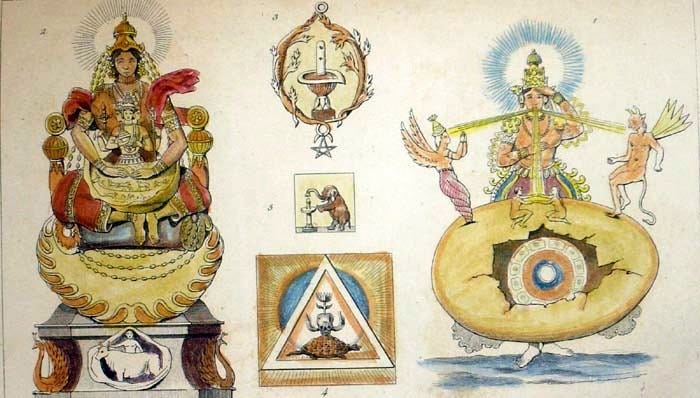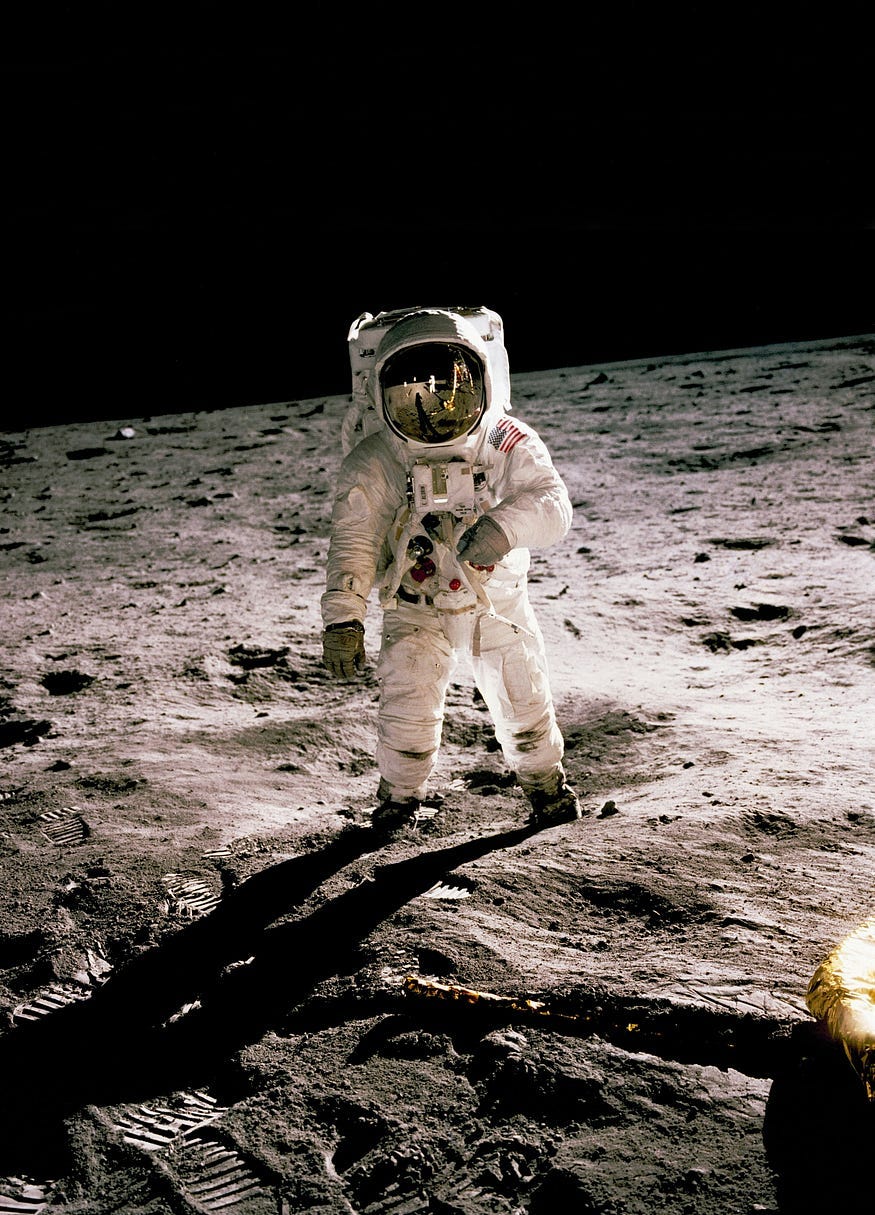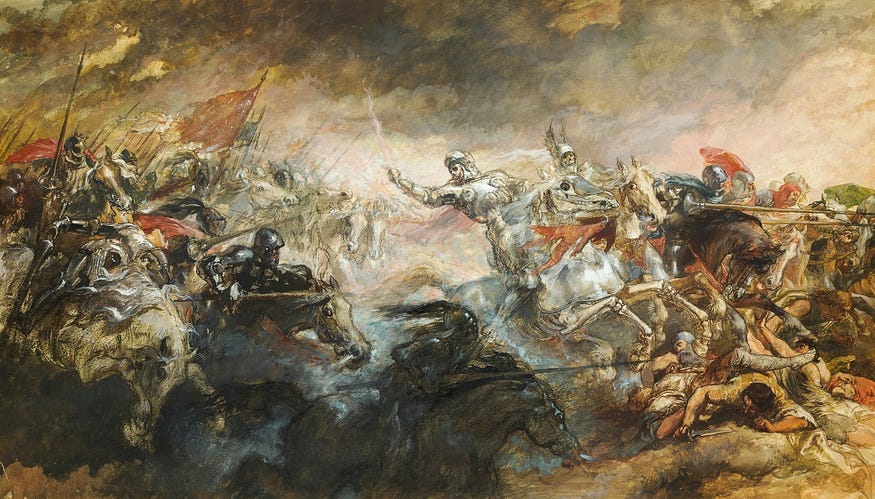If you find this content valuable, please consider subscribing to our newsletter. You’ll receive more insights like this directly in your inbox.
Ever felt small staring up at the bazillions of stars in the night sky? Like your problems back on Earth suddenly seem puny compared to the massive universe around us? That shift in perspective is the beginning of what I call “cosmic thinking.”
Let me break down what I mean by that.
Picture yourself floating away from Earth, past the moon, beyond our solar system, through the Milky Way galaxy, and into the deepest parts of space. As you keep zooming out further and further, our planet becomes a tiny dot among trillions of other stars and planets. Our Galaxy is just one in billions of other galaxies.

From this view, the universe seems freakishly huge. And Earth looks like a teeny tiny piece of the giant cosmos.
Seeing stuff from this cosmic perspective can seriously change how we view the world and our place in it. That’s the power of cosmic thinking.
Visit webbtelescope.org where you can endlessly zoom in on cosmic images.
Expanding Your Mind
Cosmic thinking is about taking a super broad, big-picture view of everything. Instead of just focusing on our day-to-day lives or personal issues, we try to figure out how we fit into the larger universe.
Some experts call this the “overview effect.” That’s when astronauts floating in space look back at Earth and suddenly realize our planet is small and connected. Their whole sense of perspective does a 180.
I have written my best story on the Overview Effect, take my advice and save it to read next.
The Most Important Image ever taken by/for Humanity
If you find this content valuable, please consider subscribing to our newsletter. You’ll receive more insights like this directly in your inbox. Imagine you’re an astronaut, returning home after a long, cold, and lonely voyage in outer space. As your spaceship approaches tiny Earth from nearly 4 billion miles away, you train your camera on that faint…
You don’t have to go to space to feel this! Just gazing at the night sky and pondering the vastness of space can spark that “woah” moment and change how you see things.
Opening our minds gets us out of our narrow daily bubbles. We can observe how our lives are part of a way larger scene.
Feeling Awe

Staring into outer space fills many of us with a sense of wonder. Thinking about the mind-blowing mysteries of the universe makes our normal problems seem not so critical.
This feeling of awe and smallness when faced with something giant and amazing has powerful effects. Studies show it can make us more helpful, and ethical, and feel more connected to others.
Some even say experiencing awe gives a glimpse into spiritual truths. It links us to the sacred energy behind the whole universe.
Those feelings of awe and smallness, when confronted with the vast cosmos, can motivate us to be better people.
That’s why I believe every president, prime minister, monarch, CEO, religious leader, judge, general, cabinet secretary, tribal elder, etc should get mandated field trip to orbit. Call it perspective adjustment through a healthy dose of shock and awe!
Cushman Thinking
The cosmic scale also represents a ridonkulous amount of time. When we look out into space, we are peering way back in time too.
For example, the light from the Andromeda galaxy takes 2.5 million years to reach Earth! So we see Andromeda as it looked millions of years ago, not as it is right now.

In fact, looking across space is like looking back through history. We are literally viewing billions of years into the past when we spot distant galaxies.
This bonkers timeframe is humbling. Our short lives are just tiny blips compared to the sweeping cosmic timeline. Events that seemed important can be put into perspective.
Thinking in this “long-term” way can be comforting and reveal meaning. Our lives are part of a 13.8 billion year old story — from the Big Bang until now. We are cosmic cush!
The Cosmic Connection
If you zoom out and look at the scale of the whole universe, you also see how interconnected everything is.
As the famous astronomer Carl Sagan said, “We are made of starstuff.” The atoms in our bodies were created inside ancient stars.

The cosmic web links galaxies across crazy huge distances. What seem like separate celestial objects are actually swaying together in a delicate dance, influenced by gravity.
Just like the stars and planets, none of us exist solo. We are all part of the same cosmic fabric, descended from stardust.
Grasping this interconnectedness makes us see all of humanity as one family. Our divisions and conflicts seem less significant compared to all we share.
One of the greatest speech of mankind on this image:
Look again at that dot. That’s here. That’s home. That’s us. On it everyone you love, everyone you know, everyone you ever heard of, every human being who ever was, lived out their lives. The aggregate of our joy and suffering, thousands of confident religions, ideologies, and economic doctrines, every hunter and forager, every hero and coward, every creator and destroyer of civilization, every king and peasant, every young couple in love, every mother and father, hopeful child, inventor and explorer, every teacher of morals, every corrupt politician, every “superstar,” every “supreme leader,” every saint and sinner in the history of our species lived there — on a mote of dust suspended in a sunbeam.
-Carl Sagan
Discovering Your Purpose
Some philosophers say adopting a cosmic perspective can also reveal a sense of meaning or purpose. Seeing the bigger picture puts stuff in context.
In an infinitely expanding universe, our individual lives may seem insignificant. But that epic cosmic drama also gives each of us a small but meaningful role to play.
Figuring out your unique part in the broader story — your purpose — is part of the journey. The cosmic view frames the quest.
Of course, there are as many meanings and purposes as there are people! We each navigate our own course within the giant celestial map.
Ancient Wisdom
Cosmic thinking may seem hippy dippy and new age, but it’s actually an ancient idea. Many indigenous cultures embraced a holistic, cosmic worldview of unity.
Western philosophers like Plato and Socrates also tried to understand humanity’s place within the larger cosmos — Greek for the universe.
In India, ancient Hindu and Buddhist texts describe a unified existence under the surface. The universe is seen as a dynamic balanced whole, dancing to its own rhythm.

Modern physics points to similar concepts of an interconnected changing universe beneath everyday reality.
Ethics of Awe
With a cosmic outlook, ethics is based on awe rather than rules. Since all is unified, harming others means harming ourselves.
Studies show this “awe-based” morality inspires good deeds better than religious or social punishments and rewards.
Seeing the world cosmically makes us more reverent, ethical, and caring. We realize our actions have cosmic consequences. Like karma, baby.

Of course, some try to twist cosmic ideas to justify doing whatever they want. But true cosmic wisdom recognizes unity and cares for all creation.
Worldview Wars
Unfortunately, lots of conflict arises from disagreements over how we see the world. People can’t agree on the nature of reality!
Religious folks see the universe as God’s creation. Materialists see no purpose, just atoms bouncing around randomly.
And cosmic thinkers? They synthesize both perspectives. The cosmos has innate sacredness and runs by natural laws. Consciousness and matter dance together.
No single angle has “the truth.” Insisting only your worldview is right divides us. Judging others’ beliefs creates hatred.

Positivity > Dogma
Here’s the key: it doesn’t matter what beliefs you hold, as long as they bring out your best self. Does your worldview fill you with awe, purpose, ethics, and compassion?
Instead of arguing over who’s right, we could focus on living up to the highest values of our own traditions. Being our best selves.
Despite differences, most ethical systems agree on the basics: help others, spread kindness, give thanks, forgive.
Imagine how much better the world could be if each of us tried to embody these universal values, regardless of our beliefs!

Creating a Shared Story
To make real progress, our global culture needs a shared story — a common understanding of our origins and destiny.
Of course, this universal narrative would still have room for diverse takes and paths. But the core elements could unite us.
Awe and ethics flow more naturally when we see ourselves as part of one unfolding story. Our well-being is tied to the whole.
At a Crossroads
Why go through this effort? Because we’ve reached a critical point in history where we need cosmic thinking.
Our advanced technology gives us godlike power to create or destroy. Climate change and nukes endanger the whole planet.
With this power comes huge responsibility. Will we use our tech and resources wisely or poorly? The moment of choice is approaching fast.
We need the wisdom that comes from taking a step back, seeing things cosmically, and realizing everything is connected.
The Choice Before Us
It’s cliché to say we are at a fork in the road as a civilization. But it’s mad true right now.
For the first time, we can model and understand the whole planet — its weather, life, economies, populations — using computers and data.
We can either keep consuming blindly until we use up the planet. Or we can embrace our role as caretakers of the Earth within a larger living system.
The stakes have never been higher. Our actions today will shape generations to come. It’s on us to think and act for the cosmic good.
Final Thoughts
Schools everywhere should teach this stuff! Wouldn’t it be amazing if everyone thought like this? Am thankful to be educated enough to experience this.
The more we embrace this cosmic perspective — intellectually and intuitively — the more it will shape our lives. We just might help guide this spaceship Earth toward an awesome future for all. You with me?









